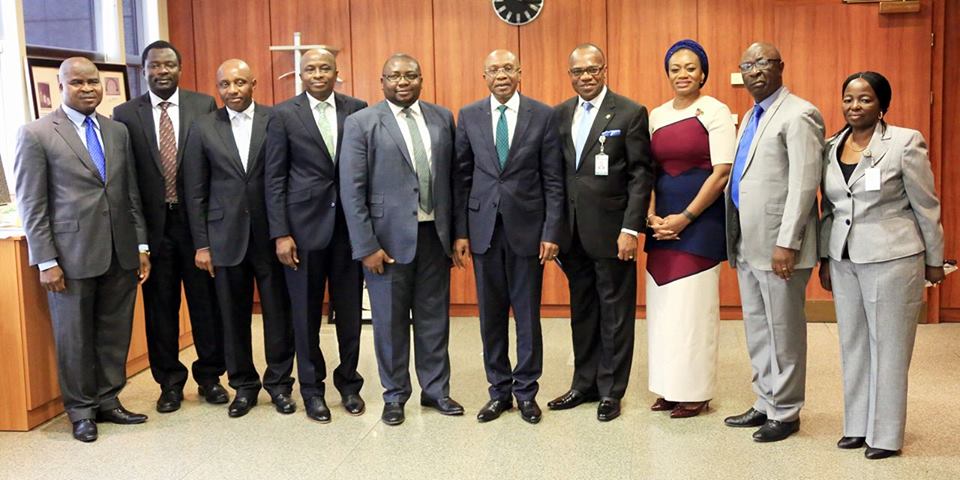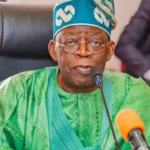
For the umpteenth month, members of the Monetary Policy Committee (MPC) of the Central Bank of Nigeria (CBN), rose from its first two-day meeting on Tuesday, voting unanimously to retain benchmark rates in favour of price stability and conducive growth.
All 11 members of the committee voted to retain the Monetary Policy Rate (MPR) at 14%; the asymmetric corridor at +200/-500 basis points around the MPR; the Cash Reserve Ratio at 22.5%; and Liquidity Ratio at 30%.
Members, according to a communiqué issued at the end of the meeting, joined the worry over the country’s bloating external borrowing, which has increased the debt level, warning “that it could fast be approaching the pre-2005 Paris Club exit level.”
The communiqué signed by Godwin Emefiele, the committee chairman and Governor of the CBN, said members “felt that tightening would result in the loss of the gains so far achieved, noting that this may drive the banks to reprice their assets; thus increasing the cost of credit as well as elevating credit risk in the economy.”
They also reasoned that “tightening would dampen investments and hamper improvements in output growth, given the already fragile growth performance so far achieved.”
The decision to retain the rates, just ahead of the all-important general elections which begin on February 16, was also based on the belief that any change could also worsen the position of non-performing loans of the banks. This, they noted, is gradually reducing, thereby strengthened the balance sheets of deposit money banks in the country.
The committee also expressed belief “that as government pays off contractor debt and other obligations, there will be a sizable reduction in the NPLs of the banking system.”
Members also challenged the CBN to the sustained stability in the naira exchange rate, following which it welcomed the narrowing of the exchange rate premium between the Bureau De Change (BDC) segment and the Investors’ and Exporters’ (I&E) window of the foreign exchange market.
The Federal Government was enjoined to intensify ongoing efforts at broadening the base of the Value Added Tax (VAT), “arguing that increased tax collection will reduce the pressure on government expenditure and create fiscal buffers to improve macro-economic management.
The observed and recent high foreign capital inflow into the Nigerian economy despite the perception of election risk, members stressed, “is evidence of the confidence of the international community in the country’s macroeconomic management and provides a compelling reason for the Committee to await clarity on macroeconomic performance after the general elections in February and March 2019.”
The MPC commended the management of the CBN for its efforts in sustaining credit delivery to the real sector of the economy, expressing concerns at the resurgence in inflationary pressure in the economy.
Members equally called attention to the report of the National Bureau of Statistics (NBS) last week showing that the nation’s “headline inflation (year-on-year) inched up to 11.44% in December 2018 from 11.28% in November 2018. The increase in headline inflation was driven by food inflation which rose to 13.36% in December 2018 from 13.3% in November, while Core inflation declined marginally to 9.77% in December 2018 from 9.79% in the previous month.
“The Committee, however, observed that the uptick in inflation was attributed to seasonal factors which impacted mainly on food.”
Members also noted the decrease in the benchmark All-Share index of the Nigerian Stock Exchange (NSE), which fell year-on-year by 17.81% from 38,243.19 basis points at end-December 2017 to 31,430.50bps last month and 1.35% to 31,005.17bps as at January 18, 2019. Market Capitalization dropped by 13.87% from N13.61tr at end-December 2017 to N11.72tr at end-December 2018, before sliding by 1.37% to
N11.56tr as at January 18, 2019.
“The committee observed that these developments largely reflected the impact of the progressive monetary policy normalization in some advanced economies and the sustained profit taking activities of foreign investors arising from perceived political risk in the build-up to the 2019 general elections.”
The MPC, nonetheless, expressed optimism about a possible “gradual reversal of the current trend in the medium term, given the current stability in the foreign exchange market and the external reserves position, as well as continued improvements in key macroeconomic indicators.”















